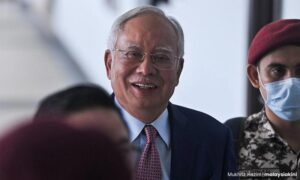By Zikri Kamarulzaman | Malaysiakini
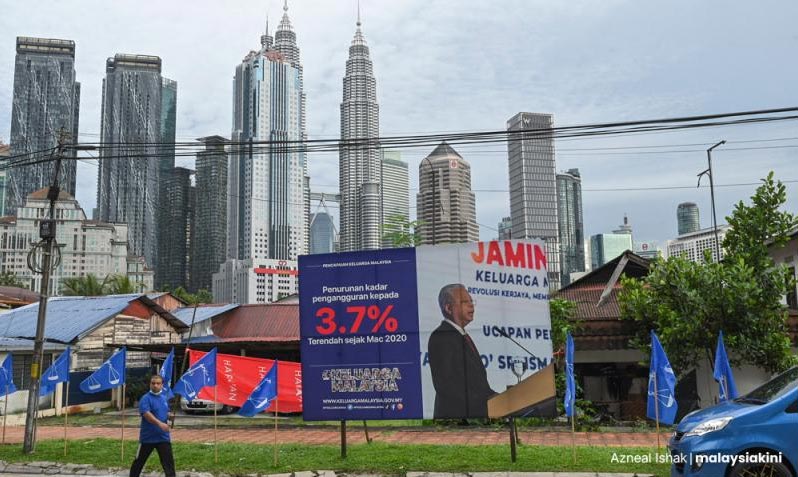
The 15th general election is perhaps the most unpredictable one that the country will go through.
It may also be the first time that Malaysia experiences a hung Parliament – meaning there is no clear winner.
In this Kiniguide, we walk through what happens then.
What is a hung Parliament?
The first thing to understand is that in Malaysia, forming a government is the duty of the Prime Minister.
A Prime Minister is appointed by the Yang di-Pertuan Agong among MPs who, in the king’s judgment, commands the majority support of the Dewan Rakyat.
A hung Parliament happens when no single party or election coalition wins a majority in the Dewan Rakyat.
This means there is no clarity on who has majority support for the king to appoint the Prime Minister.
A majority in the Dewan Rakyat is half of all seats, plus one – otherwise known as a simple majority.
Since 2008, that simple majority is 112, as there are 222 Parliament seats.
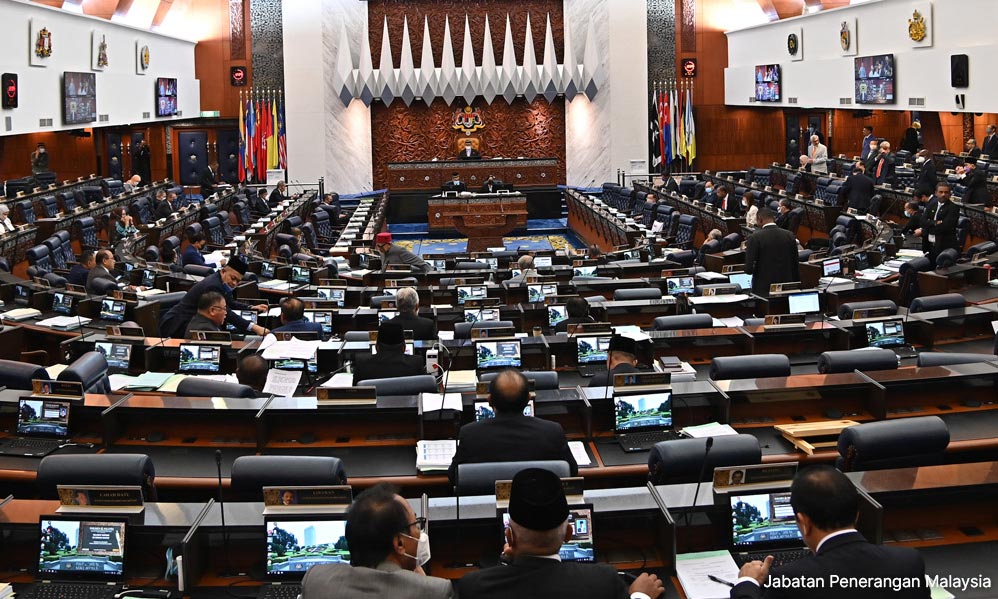
However, this year, in the event that voting in the Padang Serai seat is postponed due to the death of a candidate – the threshold for a simple majority is, in theory, reduced to 111 seats, as there would only be 221 seats contested.
But doesn’t the party with the most votes win?
Because Malaysia uses a first-past-the-post parliamentary election system, the overall victory is determined by the number of seats won.
At the seat level, whoever has the most votes wins – even if they don’t have more than 50 percent of the votes. This also translates to seat count.
In 2013, then opposition coalition Pakatan Rakyat received 50.9 percent of the total votes, but only won 47.8 percent of the seats.
What happens if Parliament is hung?
If no single election coalition or party has a majority – then they will have to form new alliances for their Prime Minister candidate to have the necessary numbers.
This is similar to how the Perikatan Nasional (PN)-BN and BN-PN governments were formed in 2020 and 2021 – in which MPs withdrew support for one Prime Minister, and supported another.
How will the alliances be formed?
There are no specific rules regarding this in Malaysia.
However, there are several conventions Malaysia could follow.
In the UK – whose Westminster system Malaysia’s Parliament is modelled on – the caretaker Prime Minister is given a chance to form the government first.
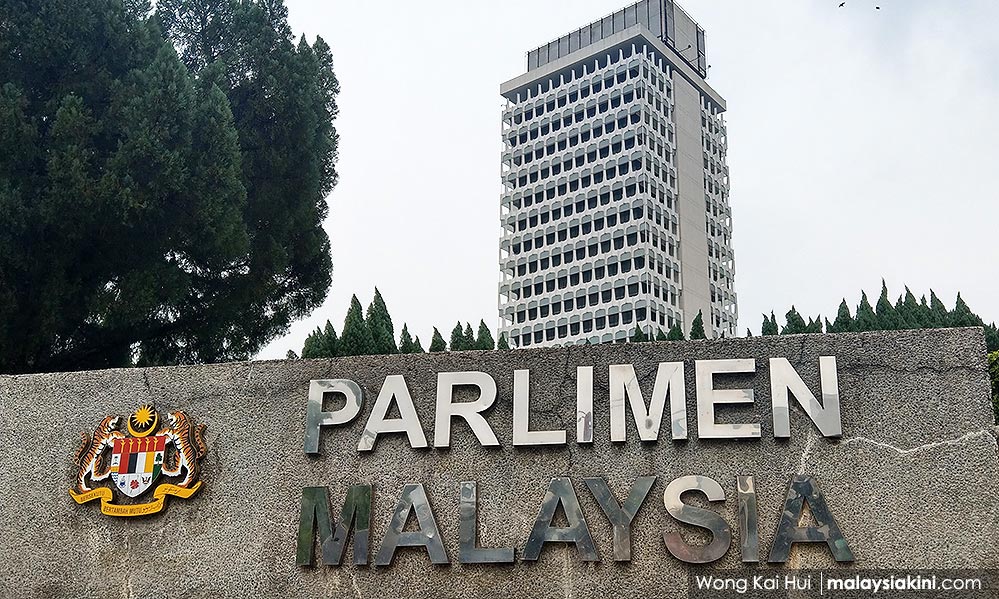
This is either via forming a post-election coalition or to try and form a minority government (more on this later).
If the caretaker Prime Minister fails, then, by convention, he resigns and invites the head of the largest party to try and form the government next – going by the same processes.
Meanwhile, in Germany, the precedent is for the party or coalition with the most seats to be given a chance to form the government first.
Lawyer Haniff Khatri Abdulla envisions that in the Malaysian context – the Agong may invite the heads of all the major coalitions and give them time to try and secure a majority.
“The king may, for example, give them all three days to negotiate and try to form a government,” Haniff told Malaysiakini.
This is based on what happened in 2020 and 2021, where the king met with party leaders – and MPs in the case of 2020 – before appointing a Prime Minister.
Wait, does this mean Ismail Sabri Yaakob may continue being Prime Minister, even if BN loses?
Yes, Ismail Sabri would probably be allowed to stay on as caretaker Prime Minister in the interim until a majority is formed in Parliament.
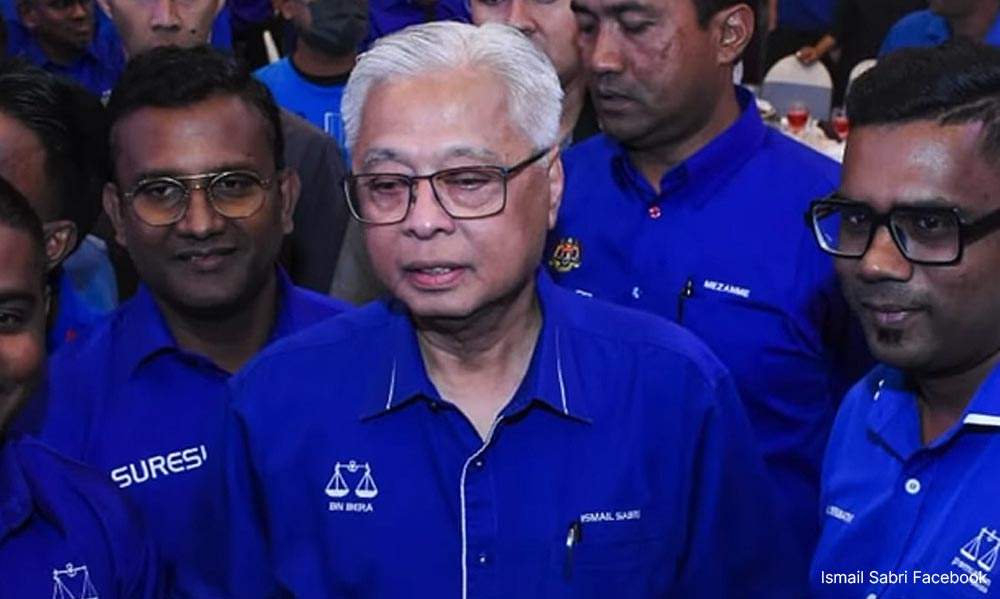
However, Haniff said if a stalemate continues after one week of negotiations – the king could appoint a different interim Prime Minister from among senior MPs who are not vying for the prime minister post.
This is to keep the government running as some matters require a Prime Minister to sign off on the matters, he added.
What happens if no majority is secured?
In the event that no Prime Minister candidate is able to get majority support after a prolonged period – there are two options available.
The first is that whoever has the most MPs supporting him could seek the king’s consent to form a minority government.
Bersih chairperson Thomas Fann and lawyer New Sin Yew both said this could be achieved if the Prime Minister candidate is able to secure an agreement with other parties.
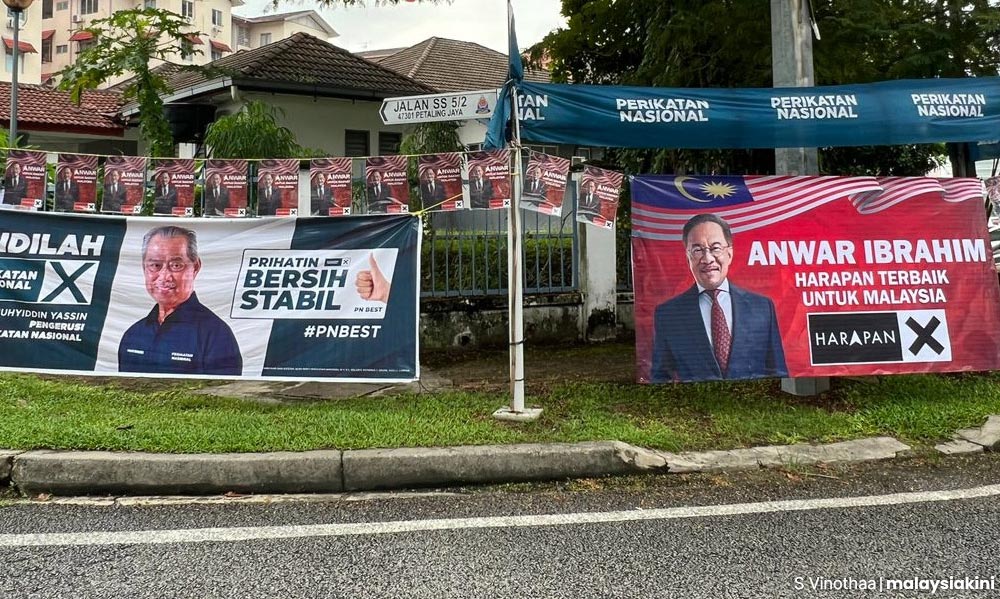
Fann said this could be in the form of a confidence and supply agreement (CSA) – in which opposition parties agree to support or abstain from votes of confidence and passing of budgets – the key elements required for a functioning government.
This would be similar to the memorandum of understanding (MOU) signed between Pakatan Harapan and the Ismail Sabri Yaakob government.
In the UK, a minority government can still be formed even without such agreements, but this is often perceived to be unstable as the government can easily be toppled via a vote of no-confidence or a defeated budget.
The second option – if a minority government can’t be formed either – Haniff argued that the Agong may also opt to call for another general election.
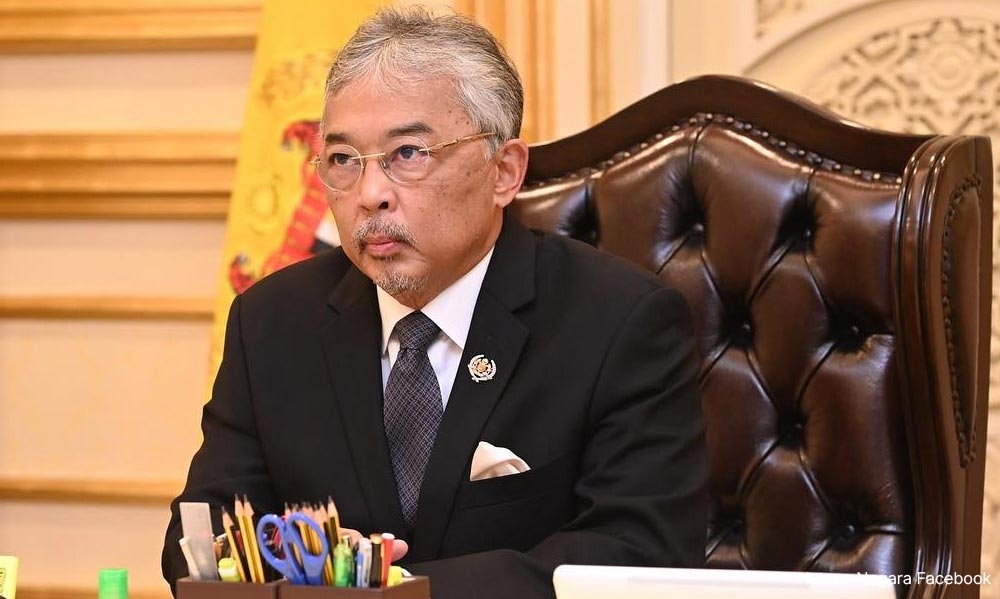
Won’t forming new alliances violate anti-hopping law?
The anti-hopping law prevents individual MPs from switching parties or quitting their parties – as this would disqualify them from their seat and trigger a by-election.
However, it does not prevent parties as a whole from changing their allegiances.
In theory, individual MPs can also choose to support a Prime Minister candidate of their choosing or sign a CSA or MOU.
However, several parties, such as DAP and Amanah, have inserted clauses in their party constitutions for an elected representative who goes against the party’s decisions to be considered to have resigned from the party – triggering the anti-hopping law.
This is meant to circumvent a clause in the anti-hopping law where MPs who are sacked from their party still get to keep their seat.
What about PN, what happens if PAS leaves?
PN is contesting under different logos in this election.
In Kelantan and Terengganu its candidates – including from Bersatu – are contesting using the PAS logo, while the PN logo is being used in the rest of the peninsula and in Sarawak.

Meanwhile in Sabah – except for Beluran – Bersatu candidates are contesting under the Gabungan Rakyat Sabah (GRS) logo of the incumbent state government.
There is rife speculation that PAS may split ways with Bersatu to back and join a BN government.
In the event this happens, there are two views on this matter.
Fann said that two conditions must be met under the anti-hopping law, namely that an MP is a member of a party, and that the MP contested the election under the party’s ticket.
He added that the definition of political parties under Article 160 of the Federal Constitution also covers registered coalitions.
“Hence, it (the anti-hopping law) does not apply to a Bersatu member who contests under PAS’ symbol, but it does apply to a PAS member who contests under PN’s symbol,” Fann said.
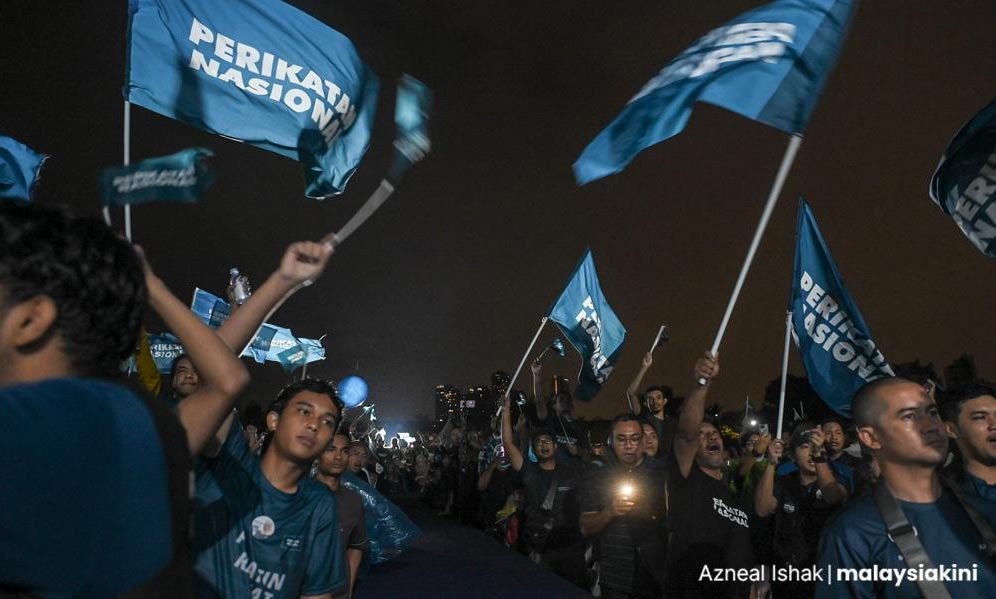
However, New argued that neither PAS nor Bersatu would be affected if either party switched allegiances.
He said this is because a coalition is an entity on its own, and while PAS as a party is a member of it, its MPs are not registered members of the coalition.
He said the anti-hopping law would thus only apply in situations such as when an MP is a direct member of a coalition itself.
Regardless, New expects such matters would likely end up in court as the anti-hopping law’s wording is sufficiently vague.
I don’t like the idea of post-election coalitions!
While this idea may be unsavoury to those who feel betrayed by the Sheraton Move and other instances of party hopping, post-election coalitions may become a norm in the future.
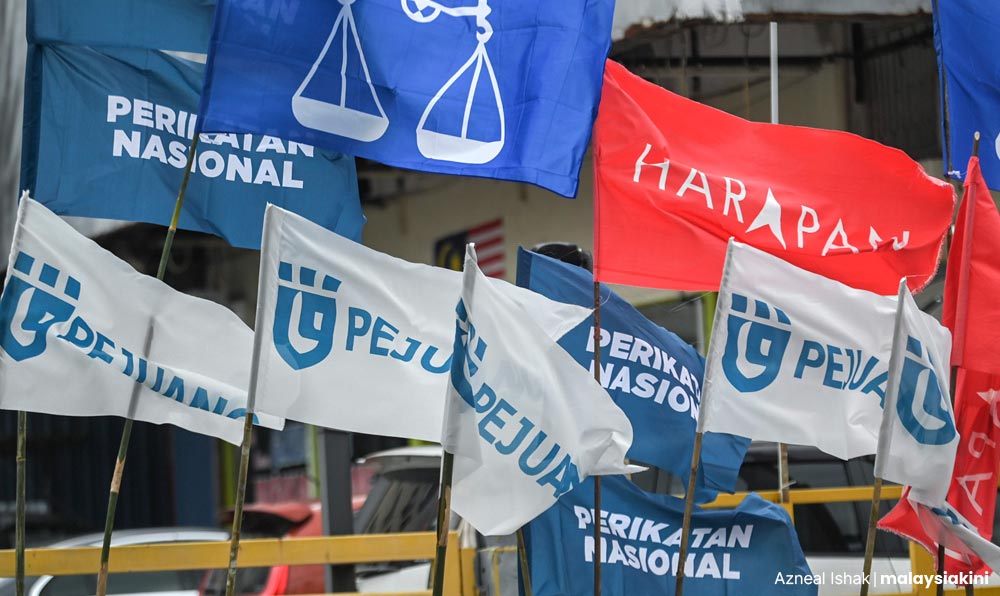
With Malaysian politics being more diverse than ever instead of the old “two-coalition system” it had before 2018 when it was just BN or the opposition – more elections will have no clear winners.
This is especially true if Malaysia’s electoral system evolves beyond first-past-the-post to a proportional representation (PR) system as some are advocating for.
PR elections ensure voters are fairly represented, and avoid outcomes such as in Johor and Malacca, where BN was able to win a two-thirds majority in the state legislature, despite winning less than 50 percent of the total votes.
In countries that practise PR elections – such as Germany – having an outright majority is rare, thus necessitating that parties compromise and form coalitions after an election.
In theory, this could help cool down divisive politics in Malaysia, forcing parties that are against each other to tone down hateful rhetoric in the interest of forming a government together.



